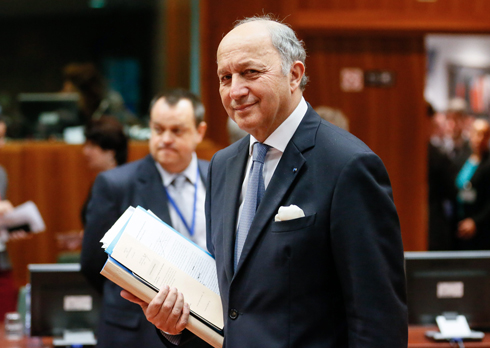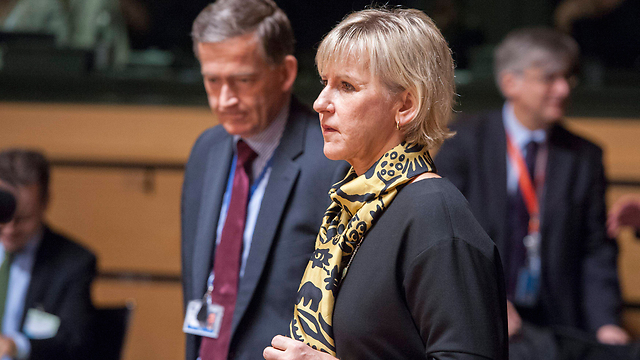
French lawmakers will vote on November 28 on a proposal by the Socialist Party urging the government to recognise Palestine as a state, a parliamentary source said Wednesday.
The non-binding but highly symbolic vote would follow a similar vote in the British parliament and after Sweden announced it formally recognised the state of Palestine.
Related stories:
- Sweden officially recognizes Palestinian state
- Report: European nations threaten to recognize Palestinian State
- EU foreign chief calls for statehood on Gaza visit
A draft of the proposal states that the lower house National Assembly "invites the French government to use the recognition of the state of Palestine as an instrument to gain a definitive resolution of the conflict".
France will "obviously at a certain moment recognise the Palestinian state," Foreign Minister Laurent Fabius told AFP on Saturday.
"The question is when and how? Because this recognition must be useful for efforts to break the deadlock and contribute to a final resolution of the conflict," added Fabius.
British lawmakers voted overwhelmingly on October 13 in favour of a non-binding motion to "recognise the state of Palestine alongside the state of Israel as a contribution to securing a negotiated two-state solution".
Sweden announced on October 30 it officially recognised the state of Palestinian, a move criticised by Israel and the United States.
The move by Sweden's new left-leaning government reflects growing international impatience with Israel's nearly half-century control of the West Bank, east Jerusalem and its blockade of the Gaza Strip. It also comes during increased tensions between Arabs and Jews over Israel's plans to build 1,000 housing units in east Jerusalem.
Foreign Minister Margot Wallstrom said Sweden, fulfilling a promise made when the Social Democratic-led government took office earlier this month, believes the Palestinians have met the criteria under international law for such recognition.
"There is a territory, a people and government," she told reporters in Stockholm, adding that Sweden was the 135th country in the world to recognize a Palestinian state.
It is the third Western European nation to do so, after Malta and Cyprus. Some Eastern European countries recognized a Palestinian state during the Cold War.
Israel was quick to condemn Sweden's announcement, with Foreign Minister Avigdor Lieberman describing it as "a miserable decision that strengthens the extremist elements and Palestinian rejectionism."
In October, Palestinians' chief peace negotiator Saeb Erekat laid out in the clearest terms yet plans to establish an independent Palestinian state within three years, even if it means ignoring pleas from the United States not to push ahead.
"The status quo cannot last," Erekat told members of the foreign press at his offices in Ramallah on Thursday. "We want to establish a state no later than November 2017. That's it."
The Palestinian leadership is well aware that the United States will almost certainly veto any such UN resolution, although it will first try to convince the Palestinians not to make such a move so that the veto does not have to be used.
Erekat said US Secretary of State John Kerry had told him at a conference in Cairo this month that the Security Council was "not an option", but avoided the word veto. The United States is a major source of funding for the Palestinians
The Palestinian Authority estimates that 134 countries have now recognised Palestine as a state, although the number is disputed and several recognitions by what are now European Union member states date back to the Soviet era.
On Saturday, Europe's foreign policy chief Federica Mogherini called for a Palestinian state sharing Jerusalem as its capital with Israel.
Reuters and AFP contributed to this report.

















